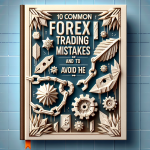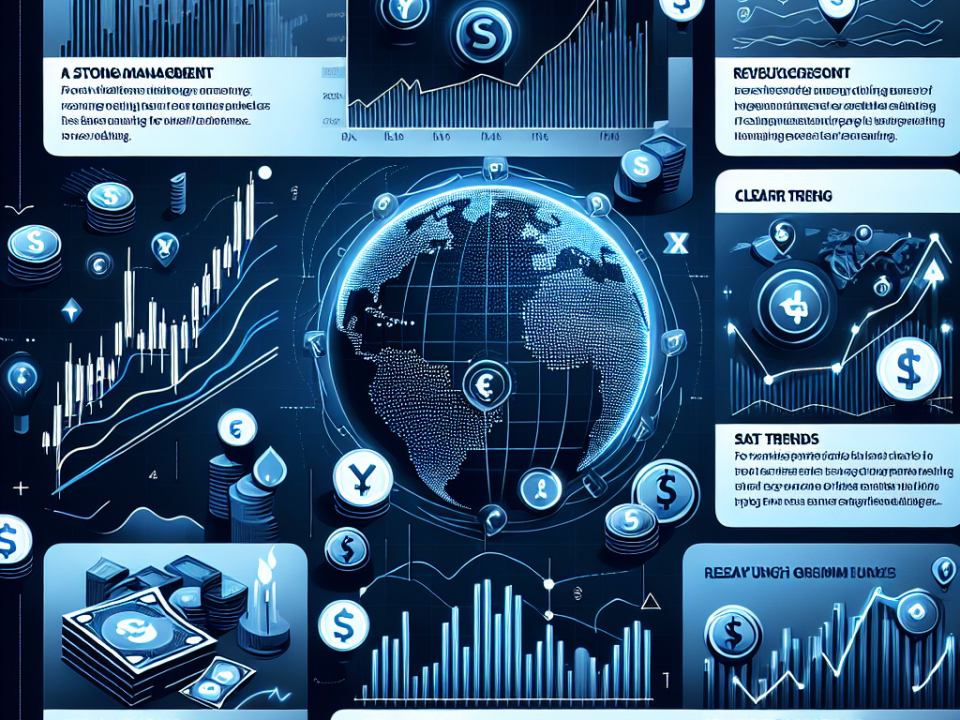
Essential Tips for Forex Trading Beginners
October 1, 2024
10 Common Forex Trading Mistakes and How to Avoid Them
October 1, 202412 Main Benefits of Forex Trading
Forex trading has become increasingly popular among both novice and experienced traders due to its many advantages. From its global accessibility to high liquidity and the use of advanced trading technology, Forex offers numerous benefits that make it a favorable option for traders. In this article, we’ll explore 12 key benefits of Forex trading and why so many people are drawn to this market.
1. It’s a Giant and International Market
The Forex market is the largest and most liquid financial market in the world, with an average daily trading volume exceeding $4 trillion USD. Its immense size allows traders from all corners of the globe to buy and sell currency pairs at all hours of the day. This global reach offers traders a wide array of opportunities for profit, no matter where they are located or what time zone they are in.
The size and scale of the Forex market also contribute to several other advantages, including accessibility, liquidity, volatility, and trading hours, which are key to making Forex a highly dynamic market.
2. It’s Good for Beginners
One of the primary benefits of Forex trading is its accessibility, making it easier for beginners to enter compared to other financial markets. You don’t need a large initial investment to start, which is why many hobbyist traders find Forex appealing.
Moreover, many brokers offer demo accounts that allow beginners to practice trading without risking real money. Demo accounts simulate live market conditions, enabling traders to familiarize themselves with the platform, market movements, and develop a risk management strategy without any financial commitment. This “try before you buy” setup is invaluable for newcomers looking to build confidence before trading with real capital.
3. You Can Trade 24 Hours a Day
The Forex market operates 24 hours a day, five days a week. Because Forex is an over-the-counter (OTC) market, transactions are not limited to the business hours of a central exchange. Instead, as long as there is a market open somewhere in the world, trading can occur.
For instance, trading begins in Sydney on Sunday at 9 p.m. GMT and continues nonstop through the closing bell in New York at 10 p.m. GMT on Friday. This around-the-clock availability is one of the main attractions for Forex traders, as it offers flexibility to trade whenever it’s most convenient.
4. Low Transaction Costs
Forex trading offers low transaction costs, making it relatively inexpensive compared to other markets. Brokers typically make money through the spread—the difference between the buying (bid) and selling (ask) price of a currency pair. These spreads are often very tight, especially for major currency pairs like EUR/USD or GBP/USD, which helps to keep costs low for traders.
However, it’s important to review all associated costs when choosing a broker, as some may charge flat fees or commissions in addition to the spread.
5. You Can Benefit From Leverage
One of the most attractive benefits of Forex trading is the availability of leverage. Leverage allows traders to control a larger position in the market with a relatively small amount of capital. For instance, with a leverage ratio of 1:50, you can control a $50,000 position with just $1,000 of capital.
While leverage magnifies the potential for profit, it also increases the risk of larger losses. For this reason, traders must use leverage carefully and apply effective risk management strategies to mitigate potential losses.
6. It’s a Market With High Liquidity
Liquidity refers to the ability to buy or sell an asset quickly without significantly affecting its price. The Forex market, due to its massive size and the constant activity of global participants, is the most liquid market in the world. This high liquidity ensures that trades can be executed swiftly, with minimal price slippage.
For traders, this means that even large trades can be placed without worrying about drastically moving the market. Major currency pairs like EUR/USD or USD/JPY are particularly liquid, offering even more stability when trading these popular pairs.

7. Volatility of the Forex Market
Volatility refers to the degree of price fluctuations within a market. The Forex market can be highly volatile, which presents both risks and opportunities. Factors such as economic stability, political news, and natural disasters can lead to significant movements in currency prices, creating opportunities for substantial profits if traders can accurately predict price direction.
For traders seeking to capitalize on rapid price movements, Forex offers an ideal environment, although it’s important to use proper risk management due to the increased risk that volatility can bring.
8. You Can Buy or Sell Currency Pairs
One of the fundamental principles of Forex trading is the ability to trade in both directions. This means you can buy (go long) or sell (go short) currency pairs depending on the market conditions. If you believe a currency will appreciate, you buy; if you believe it will depreciate, you sell.
This flexibility allows traders to profit in both bullish and bearish market conditions, providing more opportunities than traditional markets, where you might only profit from rising prices.
9. Advanced Technology for Trading
Forex trading is relatively new compared to other financial markets, and as such, it has quickly adapted to advances in technology. Trading platforms have evolved to be highly sophisticated, offering traders a wealth of tools to analyze markets, automate trades, and track performance.
Additionally, innovations such as mobile trading apps and algorithmic trading have made Forex trading more accessible and efficient, allowing traders to execute trades from anywhere and automate complex strategies with ease.
10. Well-Regulated Market
Although Forex operates in a decentralized manner, the market is still heavily regulated by various financial authorities. In the UK, for example, the Financial Conduct Authority (FCA) ensures that brokers follow strict guidelines to protect traders.
Regulation ensures that traders are protected from unethical practices, and it fosters a transparent environment where brokers must operate fairly. Traders can feel confident knowing their funds are secure with a regulated broker.
11. Scalability for Different Traders
The Forex market offers something for traders of all levels and investment sizes. Whether you’re a beginner with a small account or an experienced professional with significant capital, the Forex market is scalable. You can start small and grow your portfolio over time, adjusting your strategy as your trading experience and confidence increase.
12. Global Market Diversity
The Forex market is global, which means traders are exposed to various economies, geopolitical factors, and monetary policies. This diversity offers a broader range of opportunities to profit from fluctuations in different currency pairs. For example, traders might focus on major pairs like USD/EUR, or they might diversify by trading exotic pairs such as USD/ZAR.
This exposure to a wide variety of factors gives traders a chance to build a well-rounded and diversified portfolio.
Conclusion
The Forex market offers numerous benefits that make it a compelling option for traders. Its sheer size, 24-hour accessibility, low transaction costs, high liquidity, and advanced technology are just a few of the reasons why many people are drawn to Forex trading. Whether you’re a novice or an experienced trader, the opportunities in Forex are vast and diverse.
FAQs
1. Is Forex trading good for beginners?
Yes, Forex trading is accessible to beginners due to its low entry costs, availability of demo accounts, and access to educational resources.
2. What makes the Forex market so liquid?
The global scale, high trading volume, and constant activity across different time zones make the Forex market highly liquid, especially for major currency pairs.
3. Can you use leverage in Forex trading?
Yes, leverage allows traders to control large positions with a small amount of capital, though it increases both potential profits and risks.
4. What is the best time to trade Forex?
The best time to trade Forex is during times of high market activity, such as when major financial centers overlap, like London and New York sessions.
5. Is Forex regulated?
Yes, Forex is regulated by various financial authorities, depending on the country. In the UK, for example, it is regulated by the Financial Conduct Authority (FCA).




